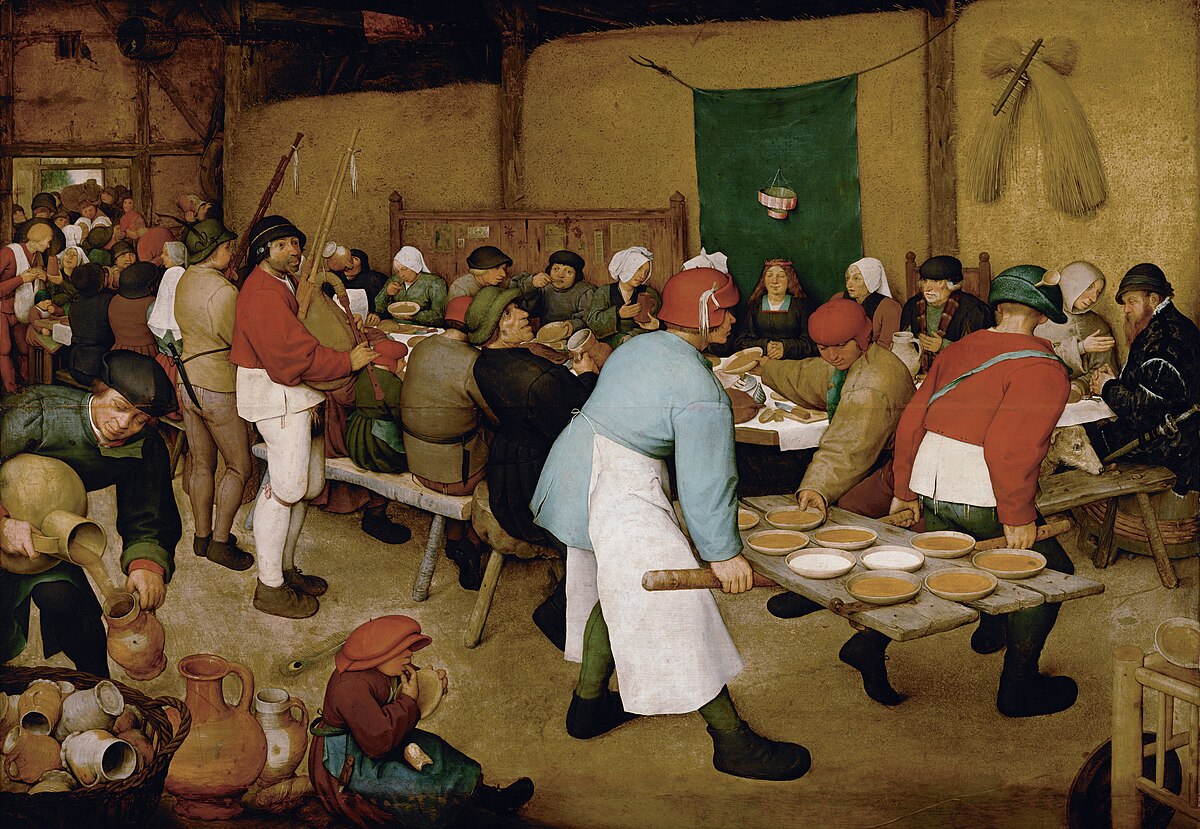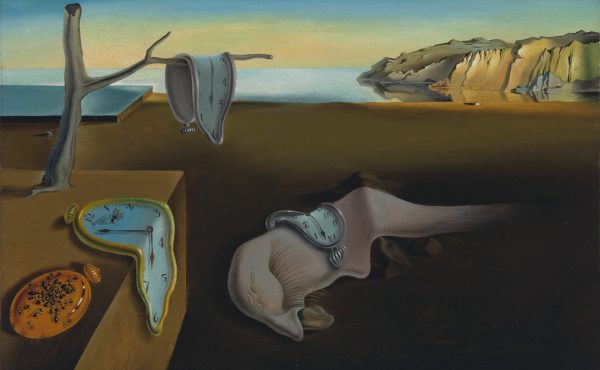At a recent Speakers Forum event, Daniel Matthys proposed a vision of new Christian politics (the text can be found here, and audio recording is forthcoming). The vision he sketched was especially cognisant of the particular context of our time and place, paying particular attention to the impact of a growing shift away from the practice of the Catholic, and more broadly Christian faith, in Australian society since at least the 1960s. The 1960s was a time which saw both a decrease in a rampant sectarianism and the welcoming of Catholics into mainstream Australian society, a process which was aided by the relaxation of certain disciplinary measures, such as abstinence from meat on Fridays, which had hitherto distinguished Catholics from the broader Australian population.
Matthys argues that the approach to politics taken by believing Christians in the past fifty years is a largely failed rearguard action, attempting to salvage the remnants of an ostensibly Christian civilization in the face of rising secularism and declining public morality. He is not wrong: Christians have lost almost every fight they have picked on the fronts of marriage, family, support for minorities, etc. In place of the culture war approach of preceding decades, Matthys took a much broader Aristotelian view of politics, and advocated for a position informed by principles of Catholic Social Thought, such as subsidiarity and solidarity. There is much to commend in his argument, and I do recommend that you read the whole thing.
The purpose of this post however, is to propose a spirituality that should inform this new approach to Christian politics. While I claim no particular expertise in or mastery of the spiritual life, I often find discussions pertaining to how Christians are to behave in the world can easily tend in the direction of a certain form of moralism that in essence becomes an idolatry of a certain manner of life. The words of Pope Benedict XVI continue to ring in my ears that, ‘being Christian is not the result of an ethical choice or a lofty idea, but the encounter with an event, a person, which gives life a new horizon and a decisive direction’ (Deus Caritas Est, n.1).
If we are to avoid the pitfalls which would make a moralism of the faith, it must be remembered that the moral life for Christians is first and foremost a response to the event of love, revealed in Christ Jesus. Again, to quote Pope Benedict, ‘Since God has first loved us (cf. 1 Jn 4:10), love is now no longer a mere “command”; it is the response to the gift of love with which God draws near to us’ (Deus Caritas Est, n.1). This new approach to Christian politics advocated by Matthys thus needs to be underwritten by a spirituality that sustains it precisely as a response to a love first received. Only this will save it from degenerating into a kind of pelagian moralism that makes an ostensibly ‘Christian’ society a product of our own making.
It is worth noting firstly that the term ‘spirituality’ is often an insipid one. Its contemporary usage relies on bourgeois distinctions between supposedly archaic and ossified ‘religion’ as an institution, and an esoteric, individualised, and ill defined ‘spirituality’ which is putatively much more personal and expressive of the self. This tends to conjure up images of COEXIST bumper stickers, new-new age microdosing spiritualists, or (in the context of professionalised Catholic institutions) coloured fabrics and candles on a ‘prayer table’. In the words of Bishop Erik Varden OSCO (one of my favourite writers), these projections have ‘as little to do with the reality as a scent-of-the-woods incense stick in the loo of an elegant restaurant has to do with a genuine birch forest.’
Varden continues, teaching that:
‘Spirituality’ comes from spiritus, which is Latin for both ‘spirit’ and ‘breath’. ‘God is Spirit’. ‘And the Lord God formed man from the dust of the earth and breathed the spirit of life into his nostril; and the man became a living being.’ ‘No one has ever seen God, except the Only-Begotten Son, who dwells in the Father’s bosom; he has shown us who he is.’ Only on these terms is it meaningful to talk of ‘spirituality’. Then the expression designates something specific: Nature’s encounter with the Supernatural in Christ, the Father’s wish to share his life and being with us in his Son, through the Spirit.
To live spiritually is to live in the Spirit attentively and obediently. The Spirit, Jesus told his disciples before he gave himself up to his passion, ‘will let you remember what I have said to you’. A criterion of authentic ‘spirituality’ is this: it brings us closer to Christ and helps us to ‘walk as he walked’.
With this as a working understanding of the term, my intention in what remains of this post, is to sketch in broad brush-strokes a spirituality for this new Christian politics.
What will become evident immediately is the bodily nature of this spirituality. Not only is it rooted in our nature as incarnational beings, but it is animated by the kind of particularity of time and place which really cuts across the grain of our contemporary culture which prioritises the possible over the actual (read more about that here). The other distinctive feature of this proposed spirituality is its communitarian nature. This communitarianism again cuts against the individualism of our day, and is rooted in a deeper vision of created reality that images the uncreated trinitarian God, who himself is a unity of tripersonal relations.
What I am proposing is nothing particularly novel—indeed, Our Lord himself offered such a spirituality when he invited us to pray ‘Our Father’, and such communional spirituality is found throughout the tradition. But the re-emphasis of this communional spirituality in our own day can be traced to such theologians as Henri de Lubac (see his marvelous book Catholicism) and received a papal boost from the pen of Pope St John Paul II who recognised this need for the Church and the world at the beginning of the third millennium when he wrote that, in order to meet the needs of the world in this new millennium, the Church needs to ‘become the home and school of communion’ (Novo Millenio Inuente, 43). The polish pontiff was no stranger to action, indeed, his performance in the drama of world history has left an indelible mark. But for him, as mentioned above, action was always a response to something greater – a love which was first received.
Before making practical plans, we need to promote a spirituality of communion, making it the guiding principle of education wherever individuals and Christians are formed, wherever ministers of the altar, consecrated persons, and pastoral workers are trained, wherever families and communities are being built up. A spirituality of communion indicates above all the heart’s contemplation of the mystery of the Trinity dwelling in us, and whose light we must also be able to see shining on the face of the brothers and sisters around us. A spirituality of communion also means an ability to think of our brothers and sisters in faith within the profound unity of the Mystical Body, and therefore as “those who are a part of me”. This makes us able to share their joys and sufferings, to sense their desires and attend to their needs, to offer them deep and genuine friendship. A spirituality of communion implies also the ability to see what is positive in others, to welcome it and prize it as a gift from God: not only as a gift for the brother or sister who has received it directly, but also as a “gift for me”. A spirituality of communion means, finally, to know how to “make room” for our brothers and sisters, bearing “each other’s burdens” (Gal 6:2) and resisting the selfish temptations which constantly beset us and provoke competition, careerism, distrust and jealousy.
He concludes, warning us: ‘Let us have no illusions: unless we follow this spiritual path, external structures of communion will serve very little purpose. They would become mechanisms without a soul, “masks” of communion rather than its means of expression and growth.’ (43)
In contemporary Catholic-Christianity, particularly as I have witnessed it in Australia, there is a propensity to privatise faith, and to consider the spiritual life to be exclusively about ‘me and Jesus’. This can make the social work of the Christians individually and of the Church more corporately little more than attempts to fulfil the voluntaristic commands of a private god whose Trinitarian nature is of little/no consequence, and who has commanded the love of neighbour for seemingly arbitrary reasons and not because his very essence is loving communio.
The spirituality of communion spoke of by Pope John Paul II is precisely the spirituality that is required of a new and somewhat countercultural Christian politics – it is a spirituality which is both Trinitarian and Incarnational. It is one which involves us more intensely in the life which we live every day, and with the people who are most immediately around us. It is more adventurous, more gritty, and while it is more particular and attentive to what many might consider to be small and insignificant, it is in fact much larger. As G. K. Chesterton wrote: “The man who lives in a small community lives in a much larger world. He knows much more of the fierce varieties and uncompromising divergences of men. The reason is obvious. In a large community we can choose our companions. In a small community our companions are chosen for us.” (Chapter 14 of Heretics).
The spirituality of communion, then is thus not any different from the Trinitarian spirituality that has animated the lives of believers since the very beginning. It is sacramental and ecclesial in nature, rooted in the particularity of the local Church. In the words of the late Monsignor Lorenzo Albacete:
Experienced in the encounter with the Incarnate Son sent by the Father, brought about by the power of the Holy Spirit, Christian spirituality is always Trinitarian. As such, Christian spirituality experiences human life as inherently communal. It brings together liberty and belonging, communion and liberation. Christ is encountered through this communion called the Church. Christian spirituality is thus ecclesial. The communio that is the Church is created and sustained by the Eucharistic Presence of the Risen Christ. Christian spirituality, therefore, is Eucharistic. Christian spirituality is Eucharistic life in this world.’[1]
[1] Albacete, L. (2003). ‘The Spirituality of Luigi Giussani.’ In A Generative Thought: An Introduction to the Works of Luigi Giussani. E. Buzzi (ed.). Montreal & Kingston, McGill-Queens University Press: 40-47, at p. 44.



